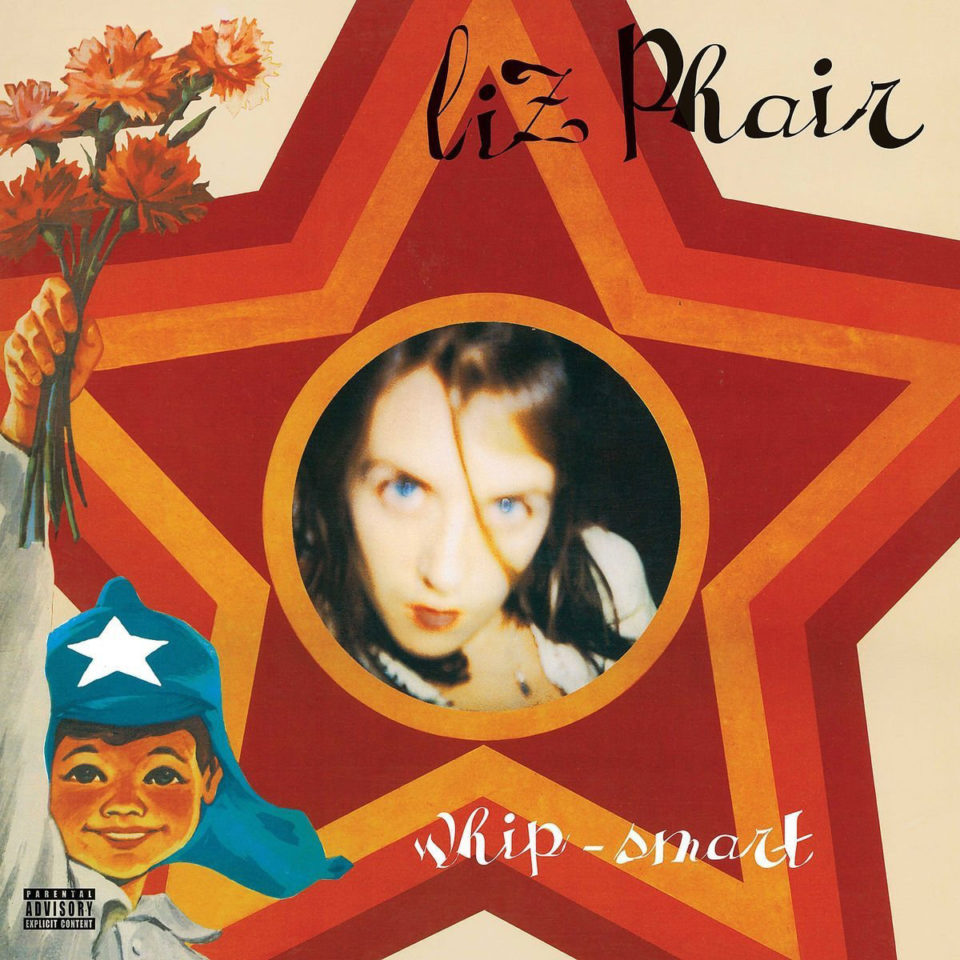By Zofka Svec
The Fulcrum, October 12, 2021
On Whip-Smart, Liz Phair’s second album, Phair metamorphoses from an indie-rock phenom to a commercially successful indie darling. With her signature pared-down guitar strums and contralto voice, Phair handily avoids the sophomore slump.
Phair and her backing band, consisting of guitarist and producer Brad Wood from her previous album, Exile in Guyville, began recording in Chicago before moving to Compass Point Studios in Nassau, Bahamas. Escaping the bustle of Chicago for the remote locale lends a unique flavour to this laid-back album.
If her first album, Exile in Guyville, is a frustrated expression of female sexuality, Whip-Smart is a sigh of relief. Phair led us through the gauzy stages of a budding romance with a gentle hand. The opener, an out-of-tune piano ballad, “Chopsticks” is a stream-of-consciousness retelling of her meeting a boy at a party. She drives him home, then drives back to her own place, because secretly, she’s timid. Guyville, being a retelling of a Stones album, is all macho vitriol. Whip-Smart is gentle and fearful, like holding a robin’s egg between your fingers, afraid to crush it.
The album’s second track and big hit, “Supernova,” is an unashamed power pop love letter to a new flame, whose “eyelashes sparkle like gilded grass.” This obsessive praise plays over a pumping, distorted guitar riff. The subject of “Supernova” is perfect: he’s an angel, a supernova, a friction blast. The music video was a 90s staple, and for good reason (it features a bashful Phair looking away for the censored “f*ck like a volcano” line). Whip-Smart is inseparable from the 90s female singer-songwriter boom, and “Supernova” is that cultural essence distilled into a song.
Another feature of the album is the male backing vocal throughout. On the plaintive refrain of “Nashville”, one of the two songs on the album named after a U.S. city (the other being Dogs of LA), we can hear a low male voice during the outro of repeated “I won’t decorate my love” punctuated by horn blasts. The effect is that they both won’t decorate their love. I think this a thematic choice that represents a union and reflects the song’s content. It describes a boring but fulfilling relationship, like after you’ve settled down.
“And I’m looking for somebody to do/my thinking for me.” “Go West” and its many lyrical enjambments is a demonstration of Phair’s college-cultivated poetry abilities. “Go West” is one of the mid-tempo pop tracks on the album, and one of the more wistful. On vinyl, this song closed the A-Side — probably because the song describes a new beginning and the end of a chapter.
The album’s title track, “Whip-Smart” is, unfortunately, one of the more forgettable. Over cricket chirps and jaunty percussive bongos, Phair recites a children’s rhyme as the chorus. I get the effect, but it seems a betrayal to her songwriting ability to use someone else’s words.
Contrast that with the angriest song on the LP, “Jealousy,” in which Phair slut-shames her new boyfriend for dating girls before her. “I can’t believe they let you run around free.” She sings in a twisted reversal of traditional gender roles. To her, he is tainted — I doubt this is how Phair really feels — and I’d bet that it’s a comment on how men perceive her and the various casual partners she describes in her previous material.
“May Queen,” the closer, is my favourite song. It wraps up a positive album with a distinctly negative spin. The instrumental intro builds up anticipation to a vengeful first line: “Don’t be fooled by him.” Great song to shower to (no one can see your tears in the shower).
I think Whip-Smart can be understood as a narrative describing the lifespan of a romantic relationship: the shy beginnings in “Chopsticks,” the all-encompassing obsessiveness of new love in “Supernova”, a depressive slump in “Dogs of LA,” the questions about the future in “Whip-Smart,” anger and fighting in “Jealousy,” and finally the insults and impending breakup of “May Queen.”










